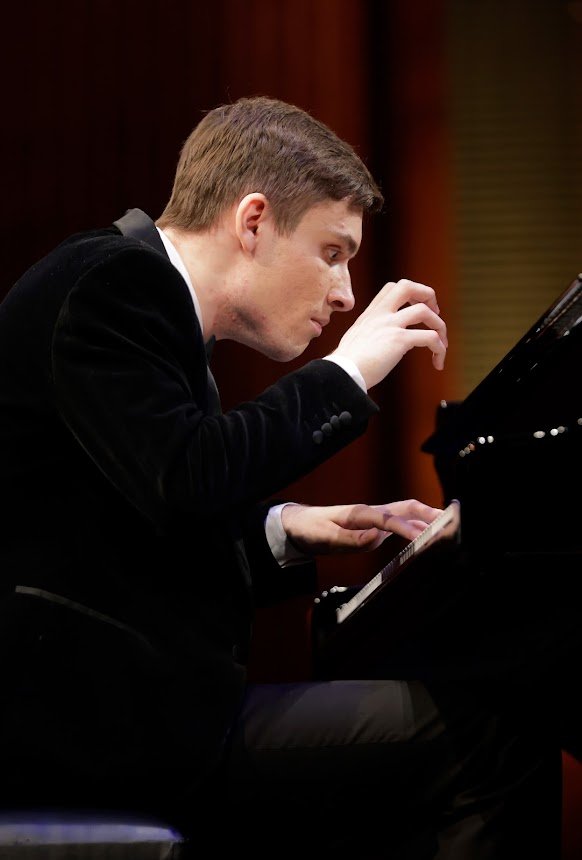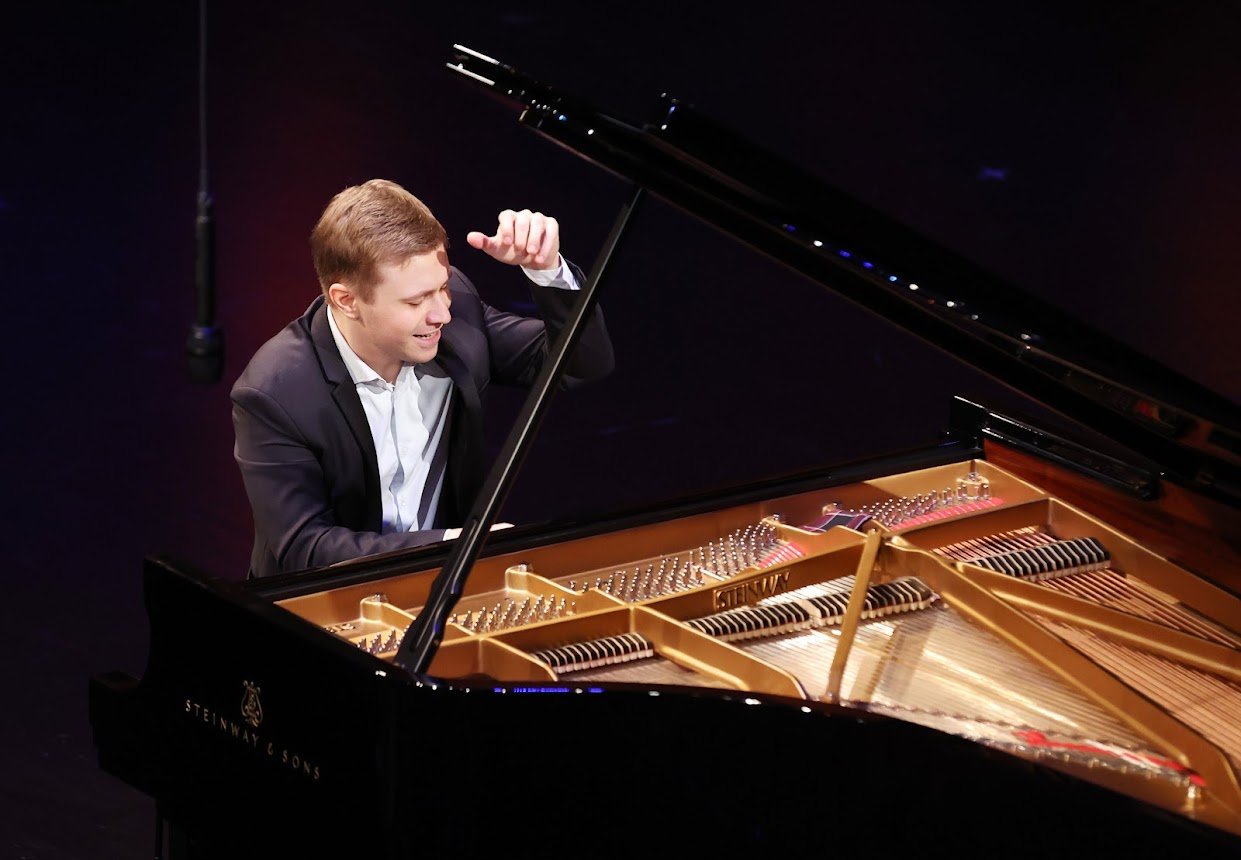Cliburn Competition: Semifinal Concert 8 (Recital), June 12, 2022
—Wayne Lee Gay
At this afternoon’s recital session of the Cliburn semifinals, two young pianists from the currently hostile neighboring nations of Belarus and Ukraine performed one after another on the stage—creating the sort of artistic occasion that justifies the Van Cliburn not just as a competitive event, but as an international forum for great performances of great music. Music has a way of creating common ground for human beings, as the competition’s namesake proved at more than one historic moment.
Twenty-year-old Belarussian Uladzisau Khandohi began the afternoon by extending his string of impressive competition performances with a program devoted to major works of Ravel and Rachmaninoff. Khandohi took a certain amount of risk in devoting an entire program to the two early twentieth-century contemporaries, particularly as this continues his avoidance of solo piano works from the baroque and classical periods. But his performances have continually revealed complete mastery of romanticism and mainstream modernism.
In this program, Khandohi began with Ravel's three-movement suite, Gaspard de la nuit., and the opening moments of the first movement, "Ondine," made for an arrestingly chilling moment in the midst of a hot afternoon. After the copious, appropriately fluid cascades of notes in "Ondine" (a description of a seductive sea creature), Khandohi followed with a sublimely spooky rendition of "Le Gibet" ("The Gallows"), rendered with skillful pedaling and a sure hand on that relentlessly repeated B-flat octave. Pianistic acrobatics continued in the final movement of the set, "Scarbo," a musical description of a gleefully evil goblin—and a work sometimes characterized as the most difficult piano piece in the repertoire.
Khandohi produced a gorgeous singing tone in the first in a set of three of the nine Etudes from Rachmaninoff's Opus 39. From No. 2 in A minor, he then turned to No. 3 in F-sharp minor and No. 4 in B minor, the first thick and dark in texture, the second a frantic folk dance that grows wilder and wilder. Rachmaninoff's Corelli Variations closed Khandohi's program, demonstrating impressive attention to counterpoint and inner voices. The final section, beginning with the gloriously serene shift from D minor to D-flat major with the fourteenth variation, provided a definitive range of color and technique for Khandohi, closing with a reverently quiet cadence.
Ukrainian Dmytro Choni, 28, likewise selected an entirely romantic and twentieth-century repertoire for his semifinal round recital. He opened with the grand agitato of the of Brahms' Rhapsody in B minor and the roiling Molto passionato of the Rhapsody in G minor, with its roiling, upward striving main theme.
Choni then moved from the solid romanticism of Brahms to the opening volleys of the modern era with Scriabin's Piano Sonata No. 4. Here, he cannily revealed both the logic and sense of instinctive creativity in this lively work. Book I of Debussy's Images for piano followed: the calm ecstasy of the opening movement, "Reflections in the Water," was another cooling moment in a horrendously hot afternoon. The second and third movements of the set, "Hommage à Rameau" and "Mouvements," were, respectively, calmly sonorous and delicately busy.
Choni closed at the heart of mainstream twentieth-century modernism with Alberto Ginastera's Piano Sonata No. 1 from 1952. Choni successfully fulfilled the interpretive and technical skills demanded by this wide-ranging work, in which modern dissonance, classical structure, and Argentine folk idioms come together.

